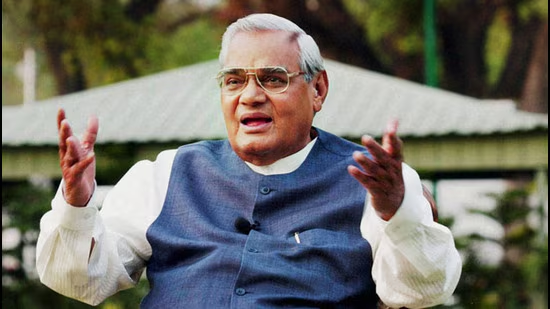Bateshwar to be developed into a major spiritual and heritage tourism hub
In a significant step to honour former Prime Minister Atal Bihari Vajpayee, the Uttar Pradesh government has sanctioned ₹27 crore for the development of his ancestral village, Bateshwar, in Agra. The initiative aims to position the village as a major pilgrimage and heritage tourism destination.
According to officials from the state tourism department, the project will focus on enhancing religious infrastructure, improving amenities for visitors, and integrating Bateshwar into Uttar Pradesh’s expanding cultural tourism circuit.
Of the total allocation, ₹19 crore will be used to redevelop and beautify the ghats stretching from Gopaleshwar Temple to a nearby cultural complex. The aim is to enhance the spiritual atmosphere of the area while ensuring improved accessibility and safety for devotees.
Two grand gateways, to be built on Firozabad Road and the Expressway Road at a cost of ₹5 crore, will serve as symbolic entrances to Bateshwar. Designed to reflect the local architectural style, the structures will offer a dignified welcome to pilgrims and tourists alike.
An additional ₹1 crore has been earmarked for installing eco-friendly signage in the Rapri region to help guide visitors and promote the area as an eco-cultural zone. Another ₹2 crore will go toward upgrading basic infrastructure in and around Bateshwar, including roads, sanitation, and public facilities.
Situated on the banks of the Yamuna River in the Chambal Valley, Bateshwar is home to a group of 101 Shiva temples, built in the traditional Nagara style and dating back to the Pratihara dynasty. The site holds deep religious and historical importance.
Tourism and Culture Minister Jaiveer Singh said the Bateshwar project is part of a broader effort to diversify tourism offerings in the state. “Agra is globally known for the Taj Mahal, but the region holds many more treasures,” he said. “By developing places like Bateshwar, Kannauj, and Braj, we are creating new circuits that celebrate our cultural heritage and uplift local communities.”
He added, “This is not just about tourism infrastructure; it’s about preserving and promoting the roots of a great leader like Atal Bihari Vajpayee.”


